What Will the U.S.-Taliban Peace Agreement Bring for Afghanistan?
By Sudha Ramachandran
March 7, 2020, the CACI Analyst
The Agreement for Bringing Peace to Afghanistan, signed by the U.S. and the Taliban on February 29, is a major milestone in the almost two-decade long war between the two adversaries. While it could change the trajectory of the conflict, it is unlikely to bring peace to Afghanistan. Narrow self-interest of the two signatories drove the deal, rather than the objective of peace in Afghanistan. This and the flawed content of the agreement will in all likelihood lead to escalating violence in the coming months.
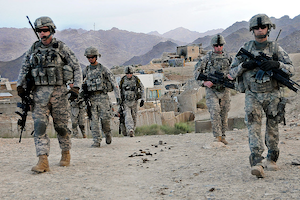
How is Afghanistan Really Doing?
How is Afghanistan Really Doing?
By: S. Frederick Starr
The Afghan peace talks are the order of the day. The negotiations themselves are wrapped in secrecy. But are Americans (and NATO allies) in a position to evaluate their outcome? This depends in large measure on whether our reigning assumptions about what’s going on in Afghanistan itself are accurate. This briefing paper acknowledges that many of them are; Afghanistan remains a very troubled land. But it also presents evidence that those assumptions are dramatically and woefully incomplete. It argues that important positive developments in the Afghan economy and society have been largely ignored, but are gaining ground over the long term. These in turn demand and justify revisions in strategic thinking in Washington and other NATO capitals.
Americans are well acquainted with the official evaluations of American aid to Afghanistan that have been issued annually by the Special Inspector General for Afghanistan Reconstruction (SIGAR). Based on voluminous data, these reports present a grim tale of malfeasance and corruption. Headings in the “Executive Summary” of the most recent report include “Widespread Insecurity,” “Under- developed Civil Policing Capability,” “Endemic Corruption,” “Sluggish Economic Growth,” “The Illicit Narcotics Trade.” “Threats to Women’s Rights,” “The Challenge of Reintegration,” and “Restricted Oversight.”
The work of the Special Inspector General has been thorough and dispassionate. To be sure, one can challenge his findings in several areas.
Afghanistan and the U.S. - Iran Confrontation
By Sudha Ramachandran
January 16, 2020, the CACI Analyst
The recent escalation of tension in the Persian Gulf following the assassination of a top Iranian general in a U.S. missile strike in Baghdad has set alarm bells ringing in the region. Iraq has already been dragged into the escalating U.S.-Iran tit-for-tat missile strikes. Given the fact that Afghanistan neighbors Iran and has a large presence of U.S. troops and facilities, the country risks becoming an additional battleground for the U.S.-Iran conflict, with potentially serious consequences for Afghanistan and the region.
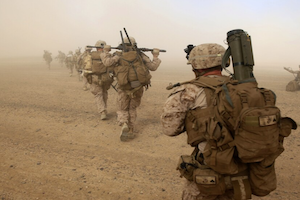
Afghanistan Headed for a New Spiral of Violence as U.S. Cancels Talks with the Taliban
By Sudha Ramachandran
October 14, 2019, the CACI Analyst
On September 7, U.S. President Donald Trump announced that he was calling off peace negotiations with the Taliban. The announcement took the world by surprise since U.S. negotiators had said that ongoing negotiations with the Taliban had produced a draft accord only a week earlier. It seemed then that the withdrawal of U.S. troops from Afghanistan was imminent, yet their exit has now been put on hold. In addition to triggering another phase of heightened violence in the war-ravaged country, Trump’s decision could pave the way for an enhanced role for Russia and China in the Afghan peace process.
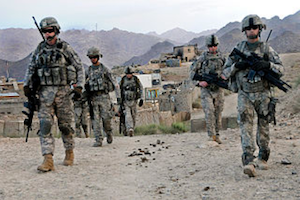
International Criminal Court Calls Off Investigations into War Crimes in Afghanistan
By Sudha Ramachandran
July 29, 2019, the CACI Analyst
The decision of the International Criminal Court (ICC) to call off investigations into war crimes and crimes against humanity that were allegedly committed in Afghanistan is said to have shattered the hopes of Afghan victims of war crimes looking for justice. However, the ICC decision need not be the end of the road for their quest for justice. Rather the ICC decision has opened space for other forms of justice, like restorative justice that enables peace and justice to co-exist. Afghanistan has a strong tradition of restorative justice. This should be revived as it would facilitate reconciliation.
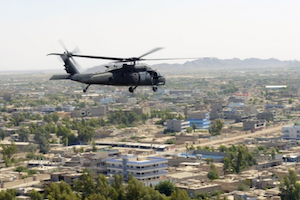
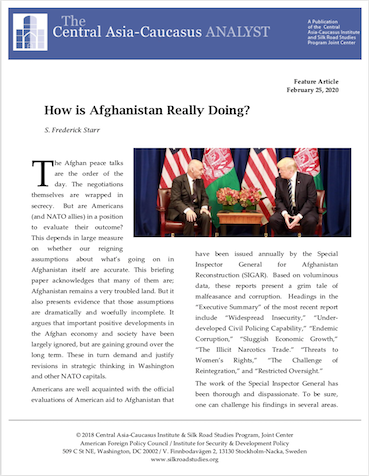





 Book S. Frederick Starr and Svante E. Cornell,
Book S. Frederick Starr and Svante E. Cornell,